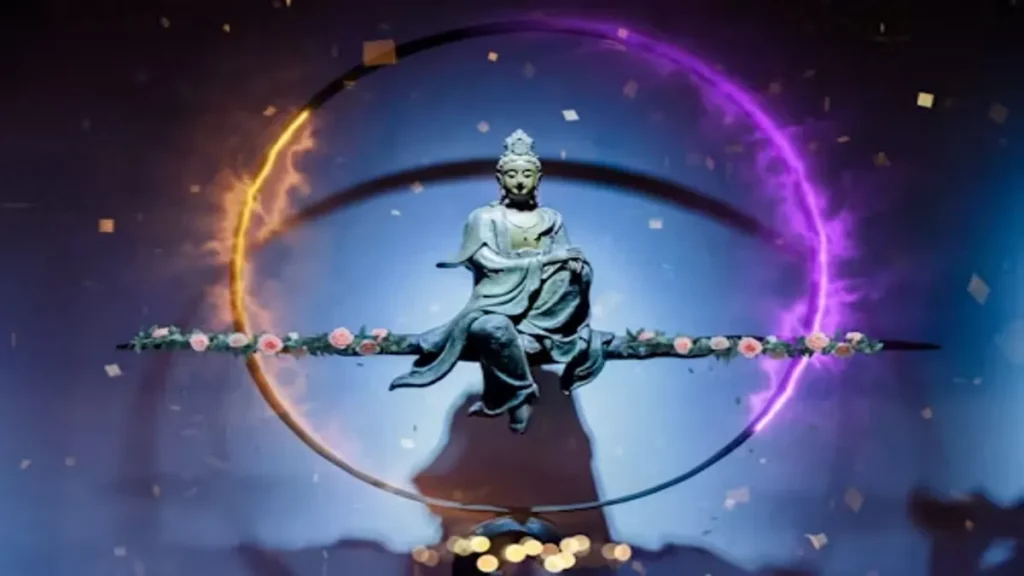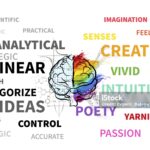Introduction: Understanding Magic Emperor Oku and Its Meaning
At its heart, Magic Emperor Oku is a narrative about the fragile balance between intellect and morality—how power, when driven by knowledge, becomes both salvation and curse. For searchers wondering what Magic Emperor Oku represents, the answer lies in its central idea: the journey of a fallen emperor who regains power through forbidden knowledge while struggling to reclaim his humanity. Within the first moments of engagement, readers or viewers encounter not merely a story of sorcery but a profound examination of ambition, betrayal, and the moral consequences of brilliance unrestrained.
The title itself carries dual symbolism. “Magic Emperor” implies ultimate control over the unseen forces of reality, while “Oku” signifies introspection—depth, secrecy, and the quiet places of the mind. Together, Magic Emperor Oku becomes both a title and a philosophy, suggesting that true mastery is not over others but over oneself. This article explores the lore, themes, character dynamics, philosophical implications, and broader cultural relevance of Magic Emperor Oku, written in a reflective style that combines narrative analysis with intellectual curiosity. Readers will find not a retelling, but an immersive interpretation that reveals how fantasy can mirror the inner architecture of the human condition.
Origins and Context: How the Legend of Magic Emperor Oku Began
The story of Magic Emperor Oku begins in a fractured empire—a world that had forgotten the cost of enlightenment. Oku, once a revered scholar-emperor, is betrayed by his closest council after unlocking the secrets of arcane creation. Cast down, executed, and erased from history, he reincarnates centuries later in the body of a humble servant. With only fragments of his old power, he seeks to reclaim his empire, not through armies, but through the manipulation of knowledge, loyalty, and illusion.
At first glance, the story might appear as a typical fantasy revenge tale. Yet beneath its spectacle lies a layered commentary on legacy, power, and self-awareness. The resurrection of Oku is not just physical—it’s philosophical. He must confront what he became and what he lost. The empire he once ruled has evolved, the people no longer remember his greatness, and the knowledge he cherished now terrifies the world.
“History doesn’t forget the powerful; it redefines them,” Oku muses early in the narrative—a line that establishes the thematic backbone of the entire saga.
Through this framing, Magic Emperor Oku transforms from fantasy into reflection: a study of how ideas outlive empires, and how wisdom can become the heaviest burden of all.
The Character of Oku: A Portrait of Power and Paradox
Oku is not a conventional hero. His intellect borders on divinity, yet his humanity remains fractured. His return is driven not by vengeance alone but by curiosity—the need to understand how his empire decayed without him. His duality defines the story: the tension between knowledge as liberation and knowledge as isolation.
Key Traits of Magic Emperor Oku:
- Relentless Intellect: His greatest weapon and curse; he perceives reality as a system of patterns and variables.
- Emotional Detachment: A consequence of centuries of introspection, making him appear cold but not cruel.
- Moral Ambiguity: His choices often balance salvation and manipulation, testing the reader’s sympathy.
- Visionary Leadership: Even in exile, he rebuilds institutions of thought, seeing governance as an experiment.
Oku’s character evolution mirrors philosophical traditions that question the relationship between wisdom and power. In this world, enlightenment is not benevolent—it is invasive, deconstructive, and often isolating. As Oku learns to re-engage with the world, Magic Emperor Oku evolves into a meditation on how intellect without empathy breeds tyranny, while emotion without restraint breeds chaos.
“Power doesn’t corrupt; it clarifies,” Oku says in one defining scene—a chilling insight into his evolving worldview.
Table 1: The Symbolic Dimensions of Magic Emperor Oku
| Element | Symbolic Meaning | Narrative Role |
|---|---|---|
| Magic | The force of knowledge and control | Represents enlightenment and moral tension |
| Empire | Structure and hierarchy | Reflects human desire for order |
| Oku (Name) | Depth and reflection | Signifies wisdom hidden beneath silence |
| Rebirth | Renewal of perspective | Connects mortality to philosophical evolution |
| Book of Shadows | Forbidden knowledge | Catalyst for conflict and insight |
Thematic Architecture: Knowledge, Memory, and Reincarnation
The defining theme of Magic Emperor Oku is knowledge as destiny. In most fantasy stories, power comes from external sources—divine blessings or mystical artifacts. Here, power originates from understanding. Oku’s magic is intellectual rather than instinctive; he reads the world like a theorem and rewrites its logic.
Reincarnation serves as both literal and metaphorical device. Through rebirth, Oku confronts not just mortality but continuity—the way ideas migrate across generations. His former empire’s ruins become schools; his old enemies’ descendants unknowingly serve him. Knowledge transcends life and death, but it also imprisons him. Every memory regained isolates him further, for no one else remembers the world as he once did.
“Immortality isn’t living forever; it’s remembering when no one else does.”
That quote encapsulates his tragedy: he can never unlearn what he knows, even when it destroys his peace.
Core Themes Explored in the Series:
- The ethics of enlightenment: Can wisdom justify manipulation?
- The cycle of power: Rebirth as both punishment and second chance.
- Memory as burden: Knowledge becomes a weight rather than gift.
- Leadership and isolation: How intellect alienates even as it inspires.
These philosophical questions elevate Magic Emperor Oku beyond conventional fantasy, transforming it into allegory.
The World of Magic Emperor Oku: Realms, Politics, and Myth
The empire of Oku is not merely a backdrop—it’s a living metaphor. Each region embodies a fragment of the human psyche: reason, faith, greed, creativity, and decay. The Northern Academies value truth above loyalty, while the Southern Sanctuaries worship ignorance as virtue. The Central Dominion, built upon Oku’s forgotten capital, thrives on distorted history—a mirror of how societies reshape memory to suit survival.
The geography of this world follows intellectual rather than natural laws. Forests shift to match the emotional tone of travelers. Rivers reflect memories instead of sunlight. In this environment, the physical and metaphysical coexist seamlessly, reminding readers that the true terrain of the story is the human mind.
“The map is not the land, but the memory of those who walked it.”
This line, spoken by an archivist in the narrative, reinforces how Magic Emperor Oku uses its world-building to explore perception. Every location is a psychological state rendered tangible.
Power and Morality: The Conflict at the Core
Power in Magic Emperor Oku is neither good nor evil—it is interpretive. The emperor’s philosophy contrasts with the world’s moral binaries. His most defining moments involve dilemmas, not battles: sparing an enemy to preserve the balance of intellect, allowing an innocent to fall to prevent greater chaos, or destroying a relic to prevent its misuse despite its beauty.
Through these paradoxes, the story invites readers to question their assumptions about right and wrong. Moral certainty, it suggests, is a privilege of the uninformed. True understanding, in Oku’s world, dissolves binaries and exposes complexity.
“When you know the cost of truth, you learn to spend lies wisely.”
This line—part confession, part manifesto—captures Oku’s evolution from idealist to realist, from ruler to philosopher.
Table 2: Moral Dilemmas in Magic Emperor Oku
| Dilemma | Decision | Outcome | Philosophical Insight |
|---|---|---|---|
| Save the Innocent or Preserve Balance | Chooses balance | Prevents world collapse but sacrifices individual | Morality as systemic, not emotional |
| Destroying the Book of Shadows | Burns it | Loses ultimate power | Knowledge must have boundaries |
| Forgiving the Traitor’s Heir | Spares him | Gains loyal ally | Forgiveness as pragmatic wisdom |
| Rebuilding the Empire | Decentralizes power | Creates stability through diversity | Leadership through humility |
The Role of Supporting Characters: Mirrors of the Emperor
Every secondary character in Magic Emperor Oku reflects an aspect of Oku’s inner struggle. His apprentice embodies curiosity untempered by restraint, serving as a reminder of his own youth. The high priestess represents faith’s resistance to intellect—her devotion challenges his reason with emotional truth. The historian, once loyal, becomes a living chronicle of hypocrisy and selective remembrance.
These relationships are not subordinate; they are dialogic. They challenge, evolve, and humanize Oku. Through their eyes, the audience witnesses the gradual restoration of empathy in a man who once believed only in perfection.
Supporting Figures with Symbolic Resonance:
- The Apprentice (Aen): Represents the untamed mind, idealism without experience.
- The Priestess (Marin): Symbolizes the tension between knowledge and faith.
- The Historian (Verris): Embodies collective memory and historical distortion.
- The General (Kael): Personifies discipline, the moral muscle of intellect.
Together, they form a chorus of conscience, reminding Oku—and the reader—that wisdom thrives on contradiction.
Philosophy and Language: The Writing Style within the Lore
The dialogue in Magic Emperor Oku is marked by restraint—short, declarative lines layered with metaphor. The language echoes philosophical texts, borrowing cadence from both classical myth and modern existentialism. Words are chosen not for ornament but for density; a single exchange often carries multiple meanings.
Oku’s speech patterns reflect his detachment—measured, impersonal, but piercing. Other characters balance this with emotional rhythm, creating tension between rational and poetic tones. This stylistic duality mirrors the story’s central conflict: intellect versus emotion.
“I studied the stars to escape the ground, and yet it was the soil that remembered my name.”
Such lines exemplify how Magic Emperor Oku merges epic scope with introspection.
The Cultural Resonance: Why Readers Connect with Oku
The appeal of Magic Emperor Oku lies not only in its plot but in its emotional authenticity. Readers recognize the loneliness of brilliance, the temptation of control, and the fear of obsolescence. In an age defined by information, Oku’s dilemma feels modern—how much knowledge is too much?
His journey resonates with contemporary audiences grappling with digital saturation, leadership ethics, and existential fatigue. The story’s refusal to provide easy answers makes it timeless. It invites readers to reflect, not just consume.
Reasons for Enduring Popularity:
- Exploration of intelligence as both weapon and wound.
- Deep philosophical undertones disguised as fantasy adventure.
- Relatable emotional conflicts about legacy and loss.
- Universally human themes of forgiveness and rebirth.
“Every reader finds a piece of themselves in Oku’s silence.”
Lessons from Magic Emperor Oku: What It Teaches About Modern Life
Magic Emperor Oku functions as parable for our era—its empire of knowledge mirrors our digital civilization. Just as Oku struggled with the weight of omniscience, we navigate worlds of data and illusion, struggling to separate insight from noise.
Contemporary Reflections:
- On Leadership: True governance demands humility before complexity.
- On Knowledge: Accumulation without empathy creates distance.
- On Legacy: The past is not meant to be worshipped but understood.
- On Power: Influence requires moral literacy as much as intellectual mastery.
Oku’s journey reminds modern audiences that progress without reflection leads to collapse. In reclaiming his humanity, he mirrors society’s need to rediscover compassion amid innovation.
The Literary Impact and Future Interpretations
Over time, Magic Emperor Oku has transcended its genre. Critics interpret it as both psychological allegory and political commentary. Some view it as a critique of authoritarian rationalism; others see it as an ode to the resilience of curiosity. Its adaptability ensures enduring relevance across cultures and generations.
In fan discussions and adaptations, Oku is not treated as hero or villain but as an evolving metaphor—proof that stories grow alongside their readers. The 2021 adaptation cycle, for example, emphasized ecological metaphors, linking magic to sustainability, while later interpretations highlight technological parallels.
Such versatility underscores why Magic Emperor Oku endures: it evolves because it invites reinterpretation.
Bullet Points: Key Insights About Magic Emperor Oku
- Represents the philosophical conflict between intellect and emotion.
- Uses reincarnation as a metaphor for moral evolution.
- Explores leadership through ethical complexity rather than heroism.
- Transforms fantasy magic into commentary on modern knowledge.
- Blends mythic storytelling with psychological realism.
Conclusion: The Enduring Light of Oku’s Legacy
In the end, Magic Emperor Oku is less about magic and more about meaning. It examines how enlightenment can isolate, how brilliance can blind, and how even the mightiest must kneel before understanding. The emperor’s final realization—that control is an illusion and knowledge a conversation, not a conquest—offers profound closure.
Oku’s journey concludes where it began: in silence, within the mind. Yet the silence now hums with harmony, not loneliness. It suggests that wisdom is not in knowing all, but in knowing when to stop seeking.
“The greatest empire is the self—when ruled with mercy.”
In that single line, Magic Emperor Oku encapsulates a truth that transcends fiction: that redemption lies not in reclaiming thrones, but in mastering one’s own heart.
Frequently Asked Questions (FAQs)
1. What is the main theme of Magic Emperor Oku?
The story explores the moral consequences of knowledge and the balance between intellect, emotion, and power.
2. Is Oku a hero or a villain?
He transcends both categories—an anti-hero whose wisdom both saves and isolates him.
3. Why is reincarnation central to the story?
Rebirth represents the continuity of thought, showing how wisdom evolves through failure and memory.
4. How does Magic Emperor Oku differ from other fantasy works?
It prioritizes philosophical and emotional introspection over spectacle, using magic as metaphor for human intellect.
5. What can modern readers learn from it?
That mastery without empathy leads to emptiness—and that reflection, not dominance, defines true enlightenment.







